Let's talk about survival. About difficult hikes, emergency situations, about trials for real men who find themselves face to face with wildlife. It would seem, what does tampons have to do with it? No, we didn't make a mistake with the title. Now we will tell you everything and show you. The topic of today's article is how to use a tampon to survive in extreme conditions. Hypocrites are not allowed to enter.
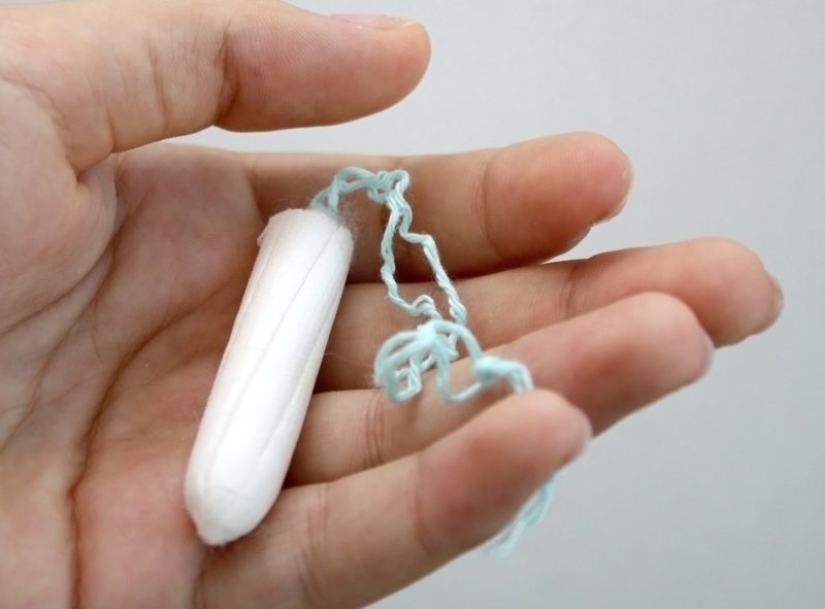
So, first of all: forget everything you knew about tampons until now. It's difficult. But imagine that you saw this thing for the first time, for example, in an online store of survival gadgets. Treat him accordingly. Now let's look at specific examples: what can a tampon be useful for? You will be surprised how many hidden possibilities it conceals in itself.
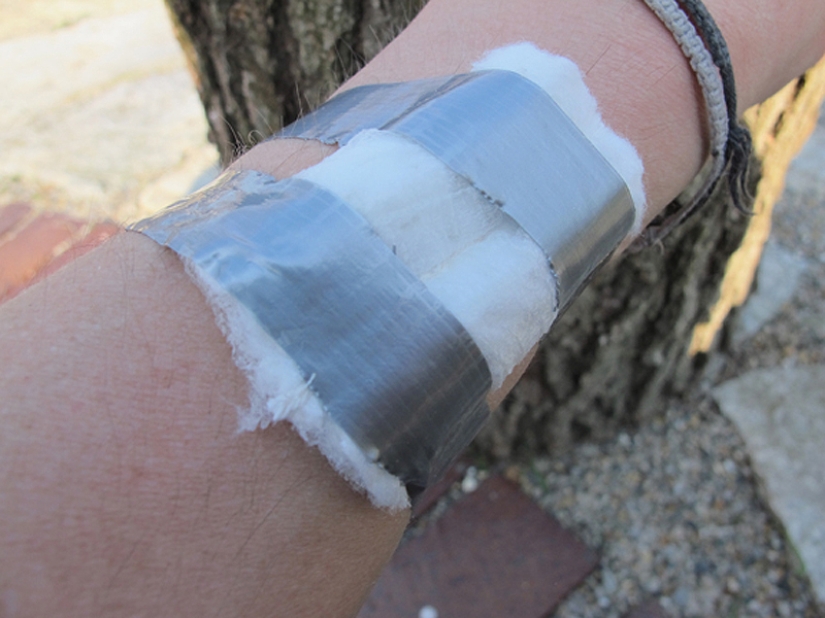
A bandage on the wound. Tampons are sterile. Their packaging is sealed and waterproof. They are designed to absorb as much liquid as possible. All this makes the tampon an excellent material for urgent dressing. It is known that tampons were used even for the primary treatment of bullet wounds during combat operations — if there was no other medical equipment at hand.
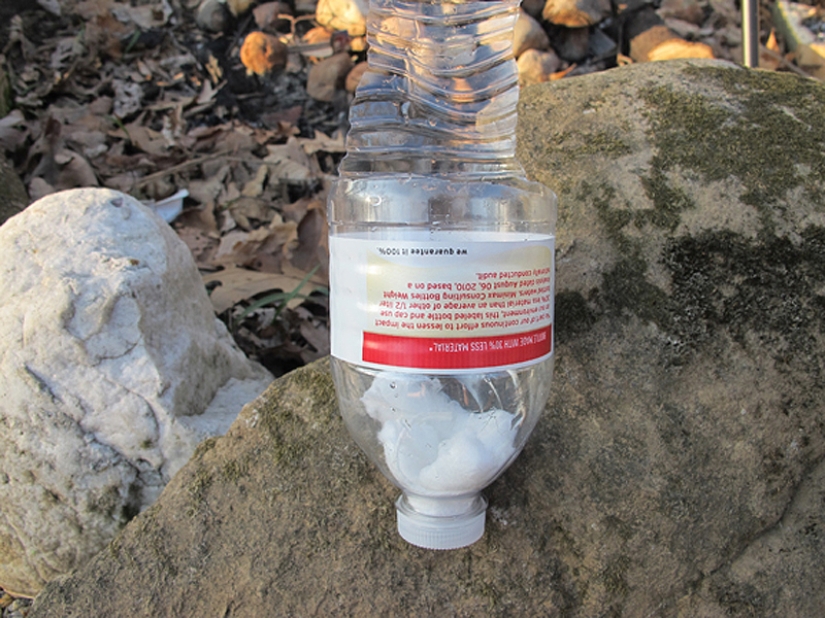
A primitive water filter. Of course, a tampon filter will not save you from heavy metals and chemical contaminants. But with the purification of water from impurities and small particles of suspension, he will cope wonderfully. If the water in the only available source is dirty, muddy, cluttered with small debris — build a simple filter from a plastic bottle and a gutted tampon.
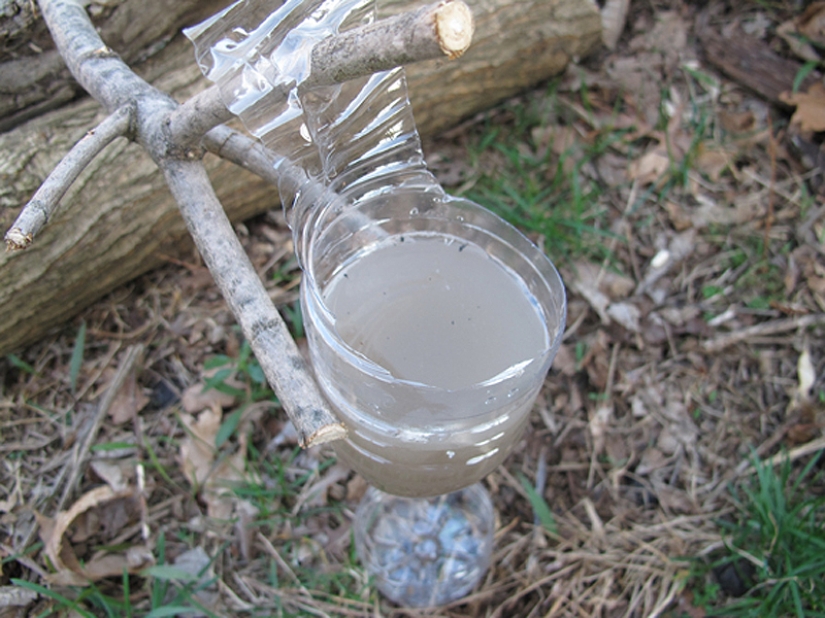
We put the tampon into the neck of the cut bottle. We make a small hole in the lid, then pour dirty water.
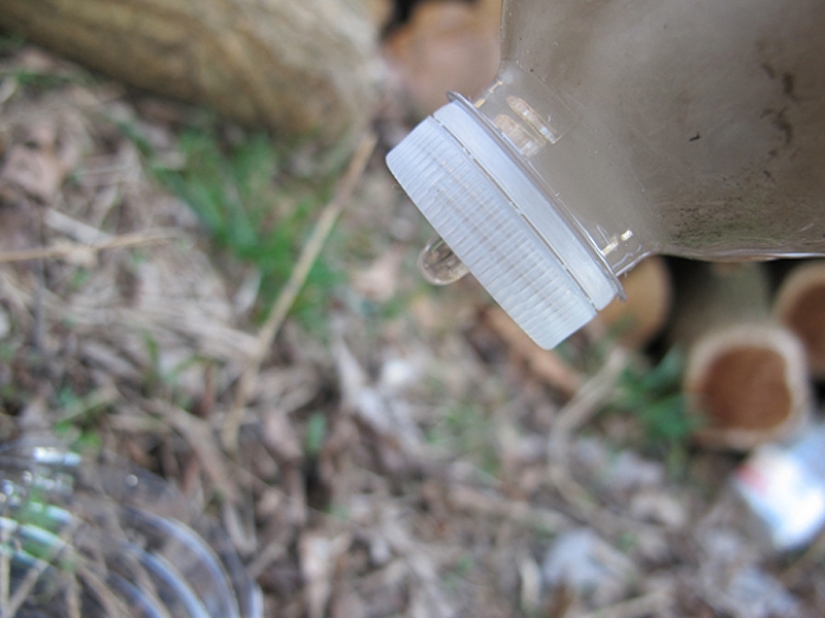
The water at the outlet turns out to be clean, transparent and quite drinkable.
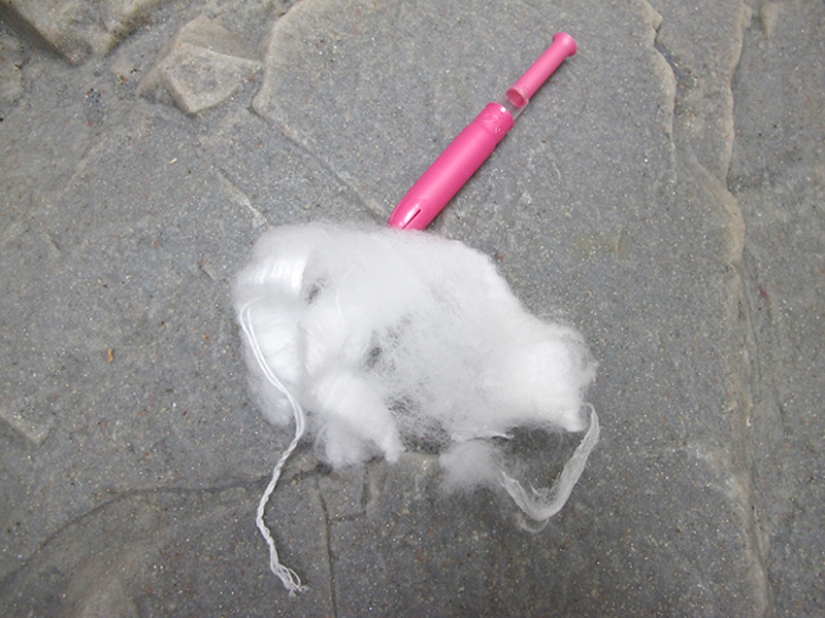
Kindling for the fire. It's no secret that cotton is highly flammable. From one tampon, if it is properly fluffed, you will get 3-4 small piles of material for kindling.
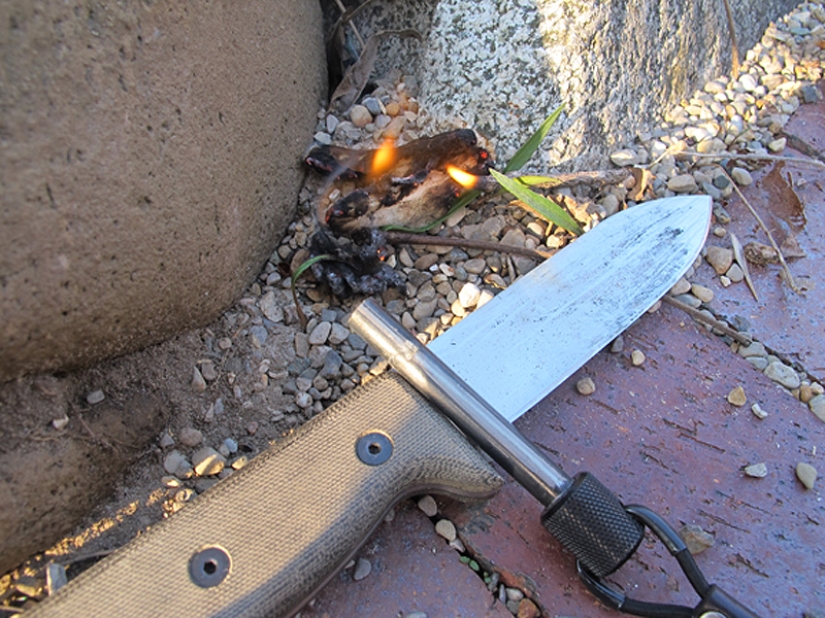
And most importantly, as we have already said, the tampon is packed hermetically, that is, your kindling will always be dry. If you pour it with gasoline or a mixture for a fire, then it will go even more lively.
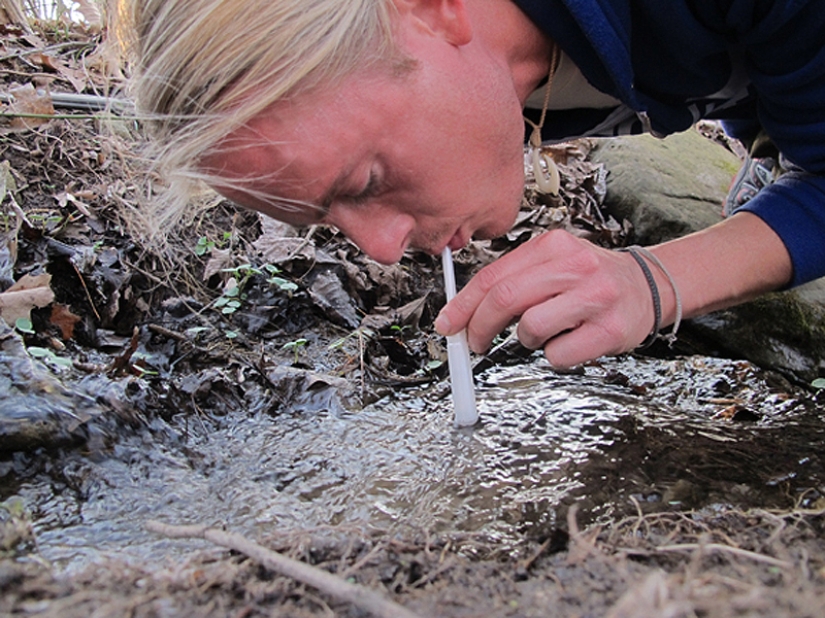
Filter tube to drink from the stream. Some tampons are additionally packed in a plastic container with a tube. We will not specify why this was done initially, we are interested in how it can be used.
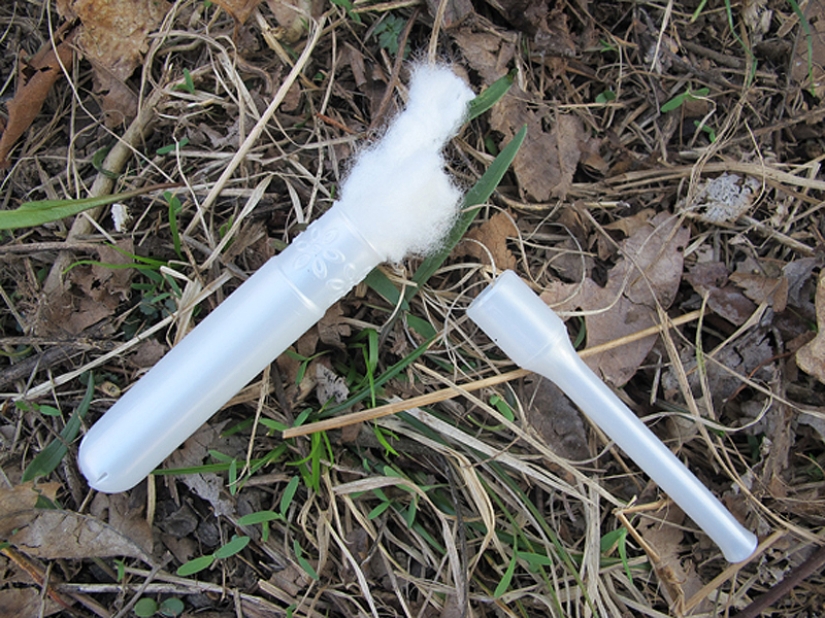
If you don't have time to properly filter the water in the way described above, you can make a filter tube and drink directly from the reservoir. We place a part of the gutted tampon in a plastic box from it, slightly tamper and attach the tube from above.
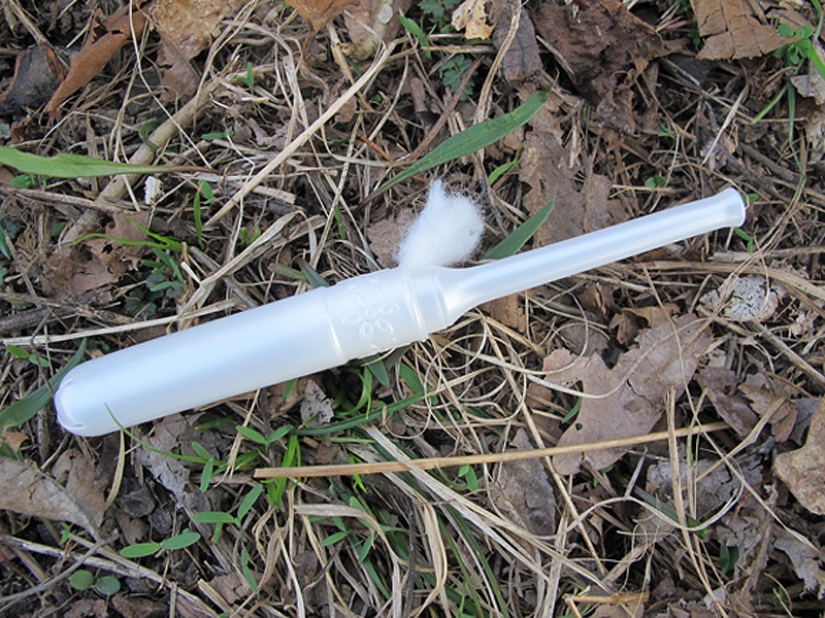
Let's repeat: this method will not purify the water from chemical and biological contaminants, but if there are no other options, the tampon will provide at least mechanical cleaning.
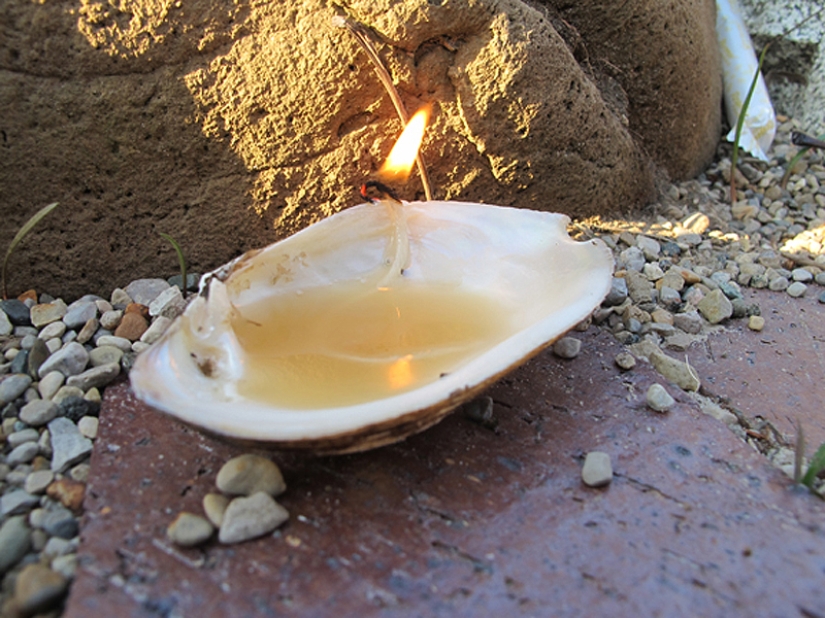
A candle wick. The exhaust cord of the tampon (a rope in the center) can serve as a wick for an improvised candle. In the photo below, animal fat is used as a filler. After the cord was soaked in fat and was successfully ignited, the candle burned for another 20 minutes. And part of the cord is still left, just the fat burned out.
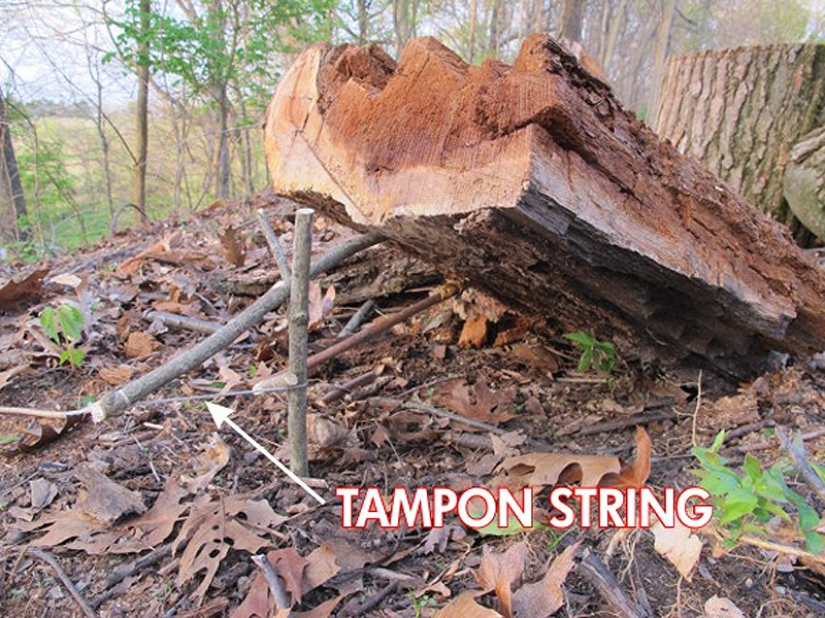
Rope. The already mentioned exhaust cord can also serve as a rope. Of course, this is not a sea rope, nevertheless, the strength of such a rope is quite decent. In the photo, the cord was used to set a trap for a small animal. In general, there can be a huge number of cases when a small, thin, but strong enough rope is needed.
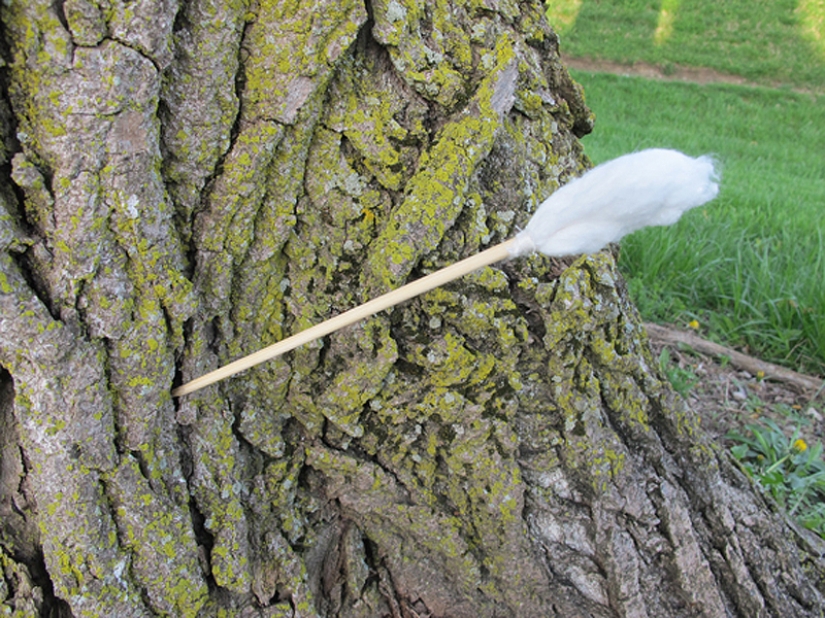
A dart. Darts have served faithfully for many centuries to everyone who has ever survived in the harsh conditions of the wild. In the right hands, this is a deadly weapon.
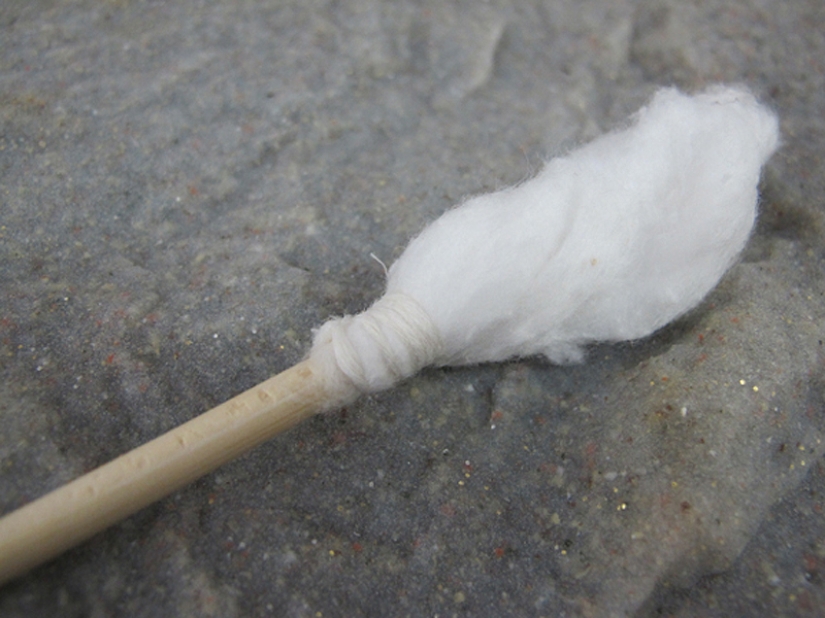
To make the simplest, lightest dart for hunting small rodents, lizards, amphibians and even birds, make a "plumage" from a tampon. You can fix it with the same exhaust cord-rope.
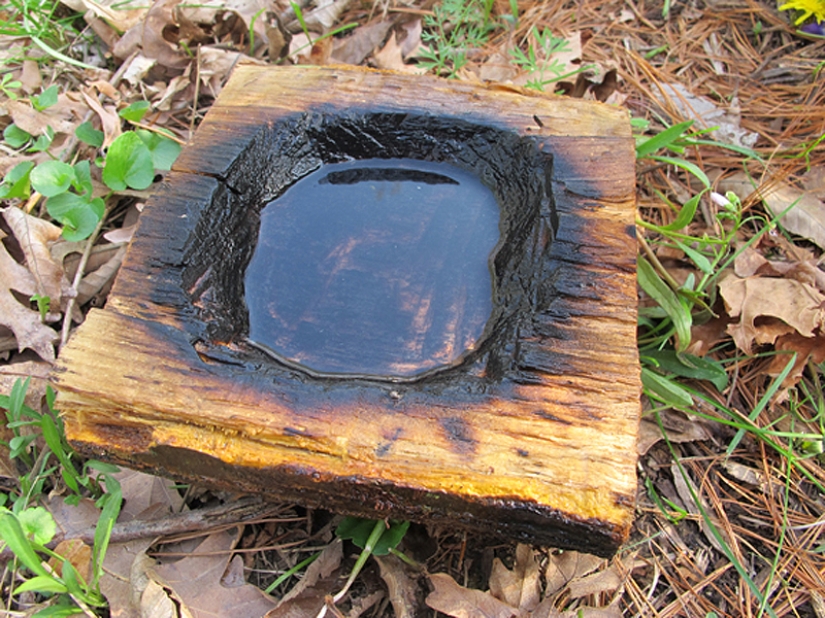
Making a natural recess for water is not so easy to find a water container in nature. And sometimes it can be vital. Such an improvised saucepan can be made using a tampon, or rather, part of it.
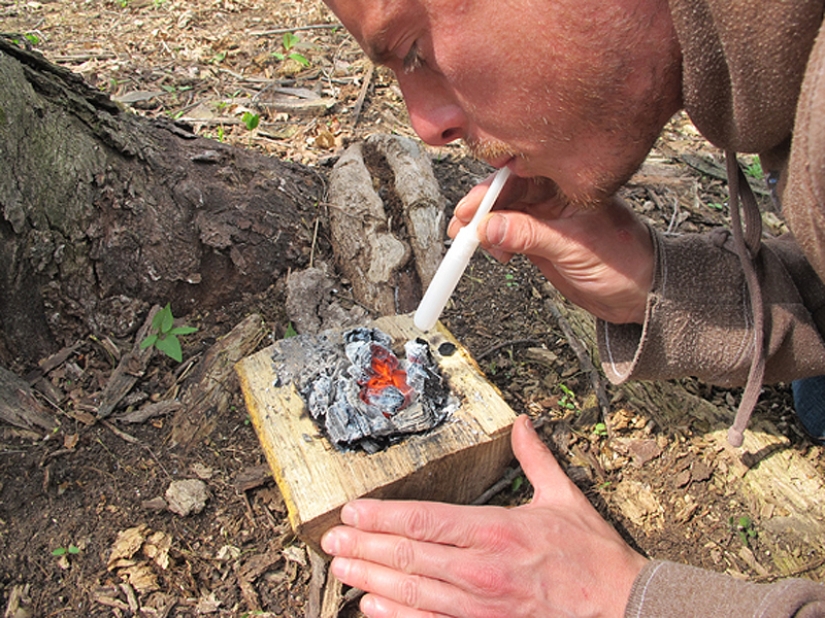
We take an empty plastic applicator from a tampon, inflate the coals on a piece of log. We burn out a suitable sized container. It took the author about 30 minutes to build a container that holds 2 cups of water.
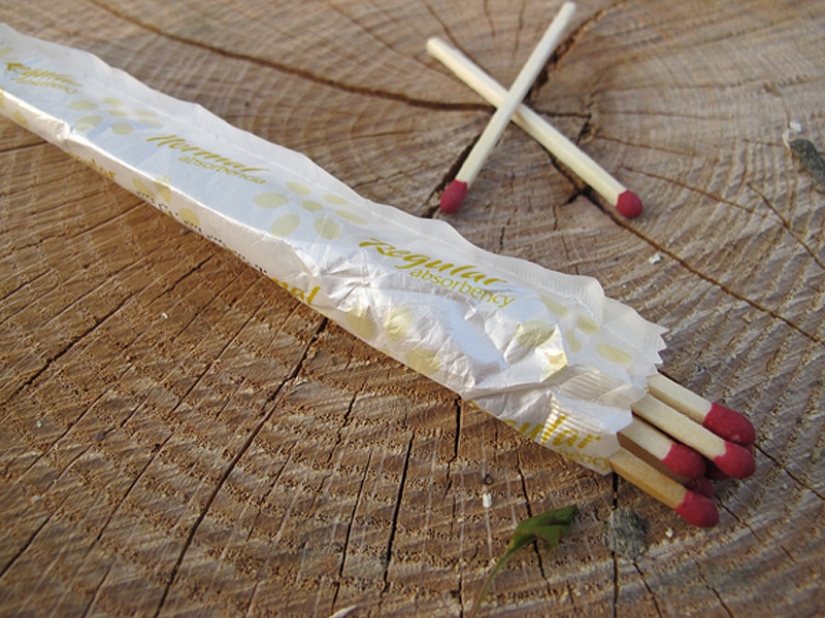
Sealed bag for matches. In conditions of dampness and high humidity, it is very important to keep matches and kindling dry. The bag in which the tampon is packed is great for this purpose, it is made of waterproof material and sealed.
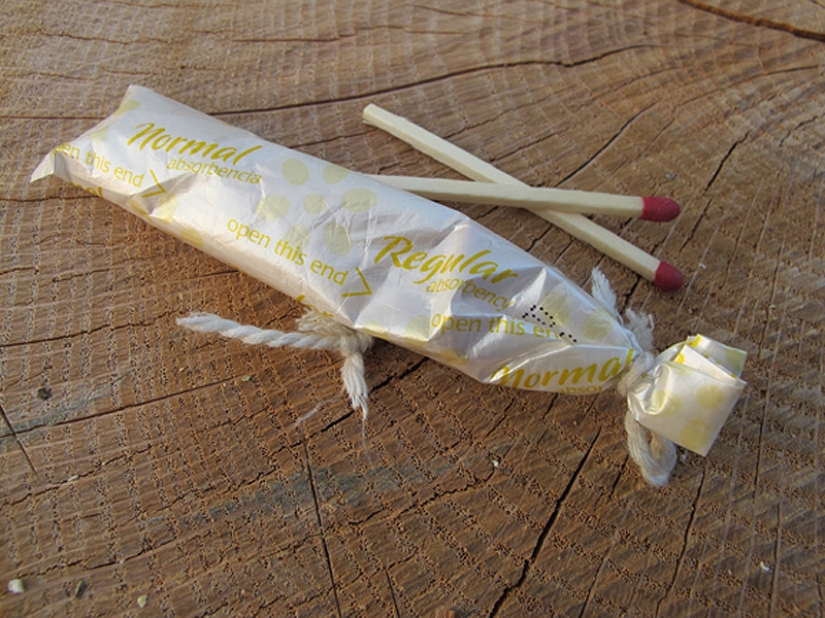
Put matches or other small things that you want to protect from moisture inside. Then tightly tighten the open end with a cord-rope from the center of the tampon:
Float. The tampon is also suitable for fishing in extreme conditions. It can be used to make a float.
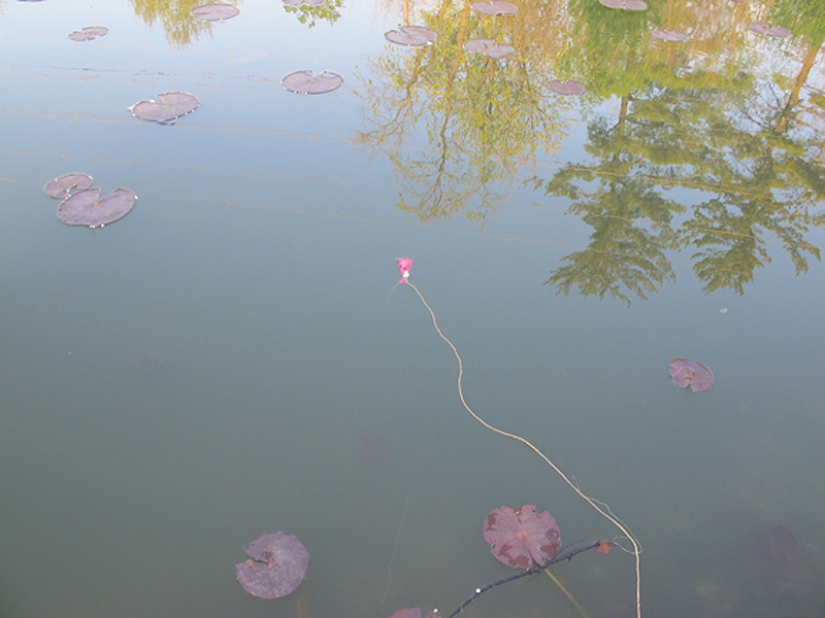
When there is a rope and a homemade hook at hand, the fishing rod is almost ready. It remains to build a float. We take the packaging from the tampon. We open it, tightly tighten the edge. To prevent the air inside from escaping, you can add a little cotton wool from the tampon itself to the place of the tie. We tie it to our "fishing line":
This tampon is such a practical and functional item. Are you brave enough to take a package with you when going on a long and dangerous journey?
Editor's note: not all tampons are equipped with plastic applicators. And not all applicators have exactly the same shape as in the photo above. If you plan to use tampons for survival, look in advance on the Internet for features of different types and brands.
Keywords: Survival | Ideas | Men
Recent articles

It's high time to admit that this whole hipster idea has gone too far. The concept has become so popular that even restaurants have ...

There is a perception that people only use 10% of their brain potential. But the heroes of our review, apparently, found a way to ...
Related articles

No wonder long hair has been considered a woman's adornment for many centuries. Girls with luxurious curls attract attention and ...

Sex — is not only enjoyable, but also a very useful exercise. Orgasm improves the General condition of the organs and ...

Man cave, or "man cave" — is embodied in the life of children's dreams of their own cozy nook where you can relax from bustle and ...

New Year's is a time to surprise and delight loved ones not only with gifts but also with a unique presentation of the holiday ...